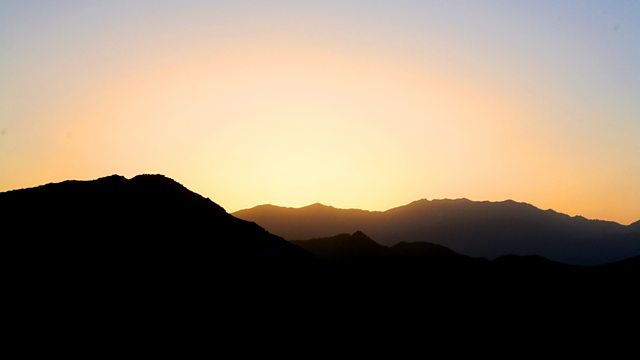Japan
Writer and artist Stephen Gill explores the complex feelings that the Japanese have for Mount Ogura. While the moutain inspires poets, it also has an illegal rubbish tip.
The Meanings of Mountains is a series of essays that, following the sun's path from east to west travels from Japan to Peru, reveal the relationships that different peoples have with their mountains. In the first the writer and artist Stephen Gill, who has lived and worked for many years in Japan, delves into the complex feelings that people there have not for their most famous mountain, Fuji, but the one that perhaps is even more important to them - Mount Ogura.
Mt. Ogura is Japan's 'poets' mountain', featuring in centuries of literature, in the works of Teika, Saigyo and Basho. The mountain is only 1,000 feet high, but it rises very steeply, with a gorge snaking round two of its sides, and it has attracted courtiers, priests and poets to its slopes in such numbers that Japan's most famous poetry collection, Ogura Hyakunin Isshu (One Hundred Poets, One Poem Each) bears its name.
Yet, on its northern flank it has an enormous illegal rubbish-tip. When its secret was exposed a few years ago it caused national consternation. Work is going on now to clear the dump and over the past few years tons and tons of rubbish has been collected, as have hundreds of short poems about the famous mountain. These unite classical images of autumn leaves, summer wind and frogs singing with car batteries, empty bottles and broken fridges.
Last on
More episodes
Previous
You are at the first episode
Broadcasts
- Mon 7 Feb 2011 23:00大象传媒 Radio 3
- Mon 12 Mar 2012 22:45大象传媒 Radio 3
Death in Trieste
Watch: My Deaf World
The Book that Changed Me
Five figures from the arts and science introduce books that changed their lives and work.
Podcast
-
![]()
The Essay
Essays from leading writers on arts, history, philosophy, science, religion and beyond.





